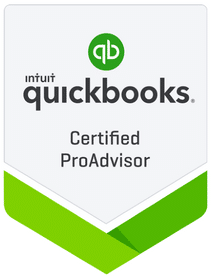- Patrick Roney
- (877) 503-8607
Follow Us :
Follow Us :
Proledge
March 18, 2011

Intuit, the maker of QuickBooks, recently entered the 401k market and is getting some good traction. Why is it worth noting? After all, there are hundreds of 401k providers out there and most are investment institutions with much better financial pedigrees than Intuit’s. However, Intuit is taking an innovative approach that might fill a void for small businesses.
401k plans are widely considered to be a powerful tool for retirement savings and for employee retention. Unfortunately, they are usually complex and expensive to administer. As a result, most small business owners consider 401ks to be a tool for larger businesses and shy away from implementing them in their own business. Intuit is trying to tackle these two core issues: cost and complexity. They partnered with Morningstar and developed an interesting program that appears to rely on three core concepts:
Unlike most 401k programs, Intuit gives you very few options. It’s a bit like Ford’s Model T: you could get the car in any color you wanted as long as it was black. Typically 401k programs allow the company and the employees to choose from many different options such as advisory services, fund types, control over the portfolio mix, etc… That’s one major source of cost. Intuit is taking that cost out of the picture by offering only one option that should work best with most small businesses and their employees. If that configuration doesn’t work for you, there’s no tweaking. Just don’t buy it.
The second leg of Intuit’s strategy is to make things simpler to administer by integrating the 401k with their other offerings, namely QuickBooks and payroll. Deductions are automatically taken out of employee’s payroll and the data syncs up with QuickBooks. That convenience is very material for small businesses. Integration with payroll is in itself very important and that’s why payroll companies such as Paychex and ADP have already become dominant players in the 401k space. Intuit goes one step further by offering better integration with QuickBooks.
The third leg of Intuit’s strategy is to bet on a “low margin, high volume” approach. Their integration with QuickBooks and Intuit’s brand recognition in the small business space is likely to give them lower customer acquisition costs than most 401k players. They also claim to charge about half of what Paychex charges in administration and transaction costs. If this is true, this is very significant.
On paper, Intuit’s strategy and value proposition appear to be very interesting. If you thought that you had been priced out of the 401k market, Intuit might warrant taking a second look at 401ks. If you are actively evaluating 401ks, you may want to add Intuit to your list of plans to look at. However, a very important disclaimer: do not make any decision regarding your 401k based on this blog. Check with a registered financial adviser or your CPA before selecting any retirement plan.


Fill out the form below to sign up to our Blog Newsletter and we’ll drop you a line when new articles come up.
Bookkeepers.
Professional. Affordable.
ProLedge is a bookkeeping services firm.
Copyright © 2024 All rights reserved.
Hello. Can we help you?